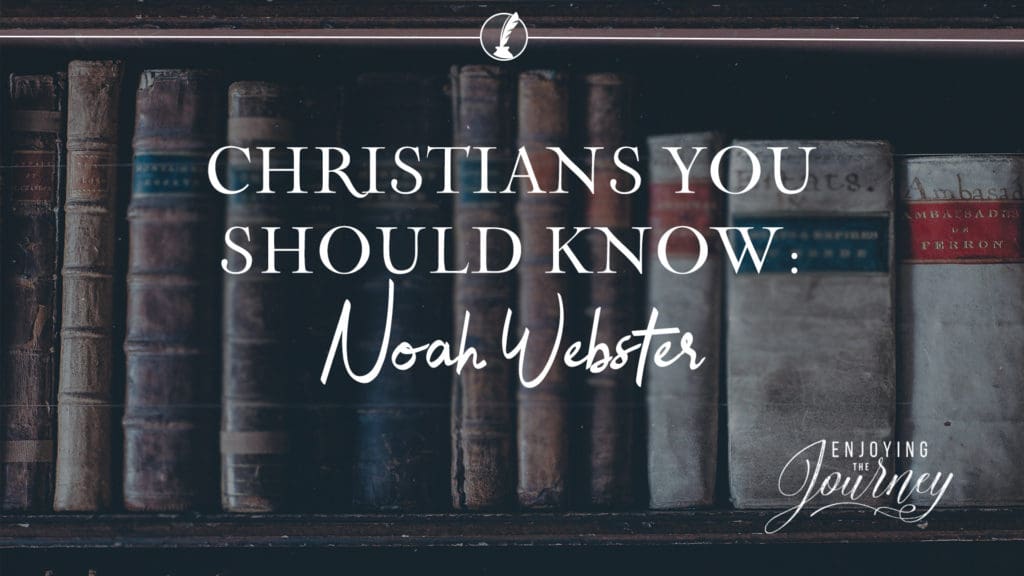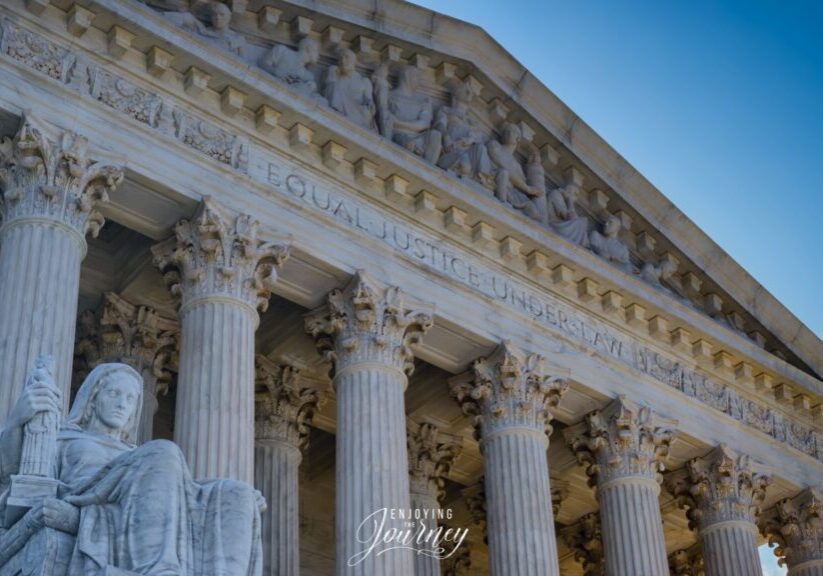
“For the which cause I also suffer these things: nevertheless I am not ashamed: for I know whom I have believed, and am persuaded that he is able to keep that which I have committed unto him against that day.” – 2 Timothy 1:12
A Snapshot of the Life of Noah Webster:
Born: Oct. 16, 1758 – West Hartford, Connecticut
Died: May 28, 1843 – New Haven, ConnecticutLexicographer and writer. In 1808, Webster began his An American Dictionary of the English Language, which was completed in 1828. Webster worked for 38 years to produce the dictionary (1790-1828). It contained 70,000 words. He also prepared a spelling book, a grammar, and a reader for the schools. Webster also sought to correct mistakes in translation and grammar in the Bible. He married Rebecca Greenleaf on October 26, 1789 and later Martha Dana in 1830, and had eight children. Early on, he authored the Blue-Backed Speller, used for years in American schools. As he was dying, he quoted 2 Timothy 1:12. – (Excerpt taken from the Reese Chronological Encyclopedia of Christian Biographies. Used by permission.)
A Spiritual Application for Our Lives:
Most of us have used the Webster’s Dictionary from time to time. Many do not know of the remarkable Christian man behind this epic work. Noah Webster was a prolific writer, teacher, and influence in the early days of the United States. Before any of his political or educational reforms for which he labored, Webster was a man of God’s Word. Noah Webster was a firm believer in the absolute necessity of Scripture in private life and private duty. He wrote on one occasion:
“In my view, the Christian religion is the most important and one of the first things in which all children under a free government ought to be instructed. … No truth is more evident to my mind than that the Christian religion must be the basis of any government intended to secure the rights and privileges of a free people.”
Additionally, Webster understood that true education must begin with God and His Word. He wrote extensively on history, government, and language; however, Webster also sought to instill the necessity of God’s Word in His writings. For example, one of Webster’s history books begins with this admonition:
“I would commend to you, at this early period of life, to become well acquainted with the Scriptures and with the facts and arguments which support their authenticity, and their divine original. Nothing is more common than for young men to fall into skepticism merely for want of a thorough knowledge of the Scriptures…”
Regarding the crumbling of societies and communities, Webster observed that sin was the source and that obedience to God’s Word is the only answer to the miseries around us. Webster said, “The moral principles and precepts contained in the Scriptures ought to form the basis of all our civil constitutions and laws…All the miseries and evils which men suffer from vice, crime, ambition, injustice, oppression, slavery, and war, proceed from their despising or neglecting the precepts contained in the Bible.”
Webster dedicated his entire life to the betterment of others; he understood that only submission to God and His Word would lead to true blessing and fulfillment. Sin is the source of all evil. While battling for abolition, education, liberty, and the rule of law in civil government, Webster never neglected to address the real issue – sin, and the only answer for sin – Christ and His Word.
Webster lived a fulfilled, blessed life. He is remembered for his immeasurable influence on the United States and around the world. Let us reflect on his practical caution in seeking personal fulfillment.
“Sin, even in this life, produces more pain and misery than real pleasure. No, my friend, there is no substantial satisfaction in this life, except in conforming to the laws of the Supreme Lawgiver. . . Man enjoy[s] the most happiness when his heart is reconciled to the Divine laws and most conformed to the Divine character… The soul of man is, I am persuaded, never tranquil till the will is subdued and has yielded with implicit submission to God’s sovereign grace.“
A Suggestion for Further Reading…
Noah Webster’s Advice to the Young and Moral Catechism – Noah Webster, David Barton; Wallbuilders (1996)
Discover more from Enjoying the Journey
Subscribe to get the latest posts sent to your email.






